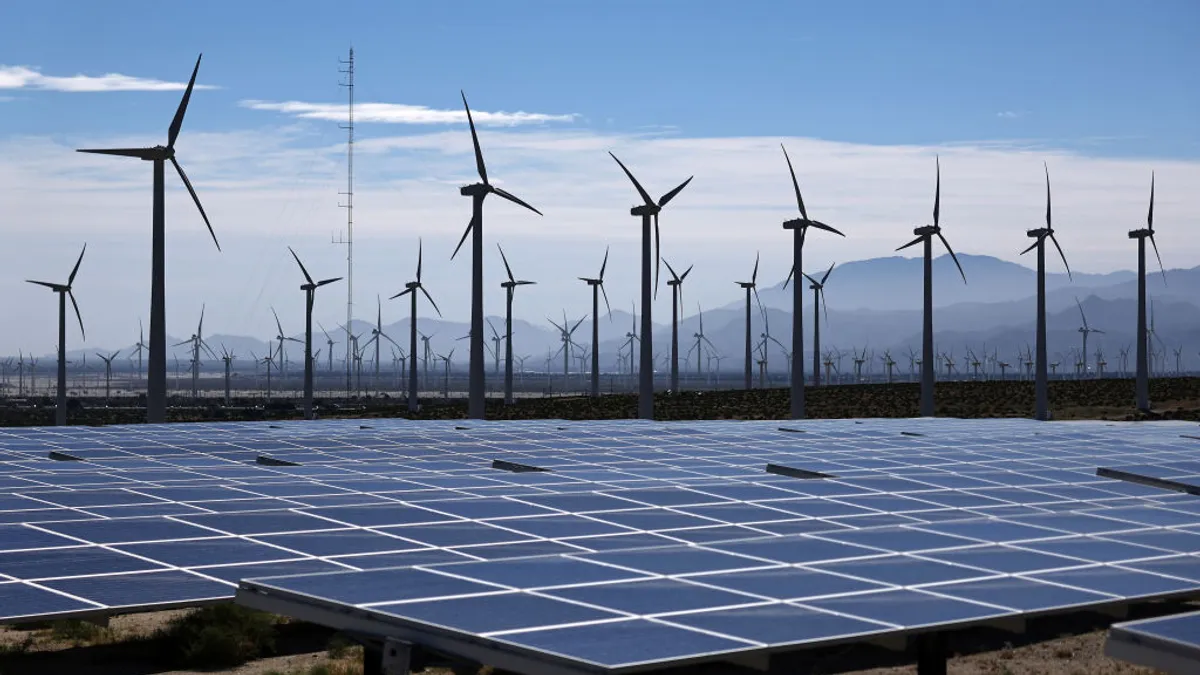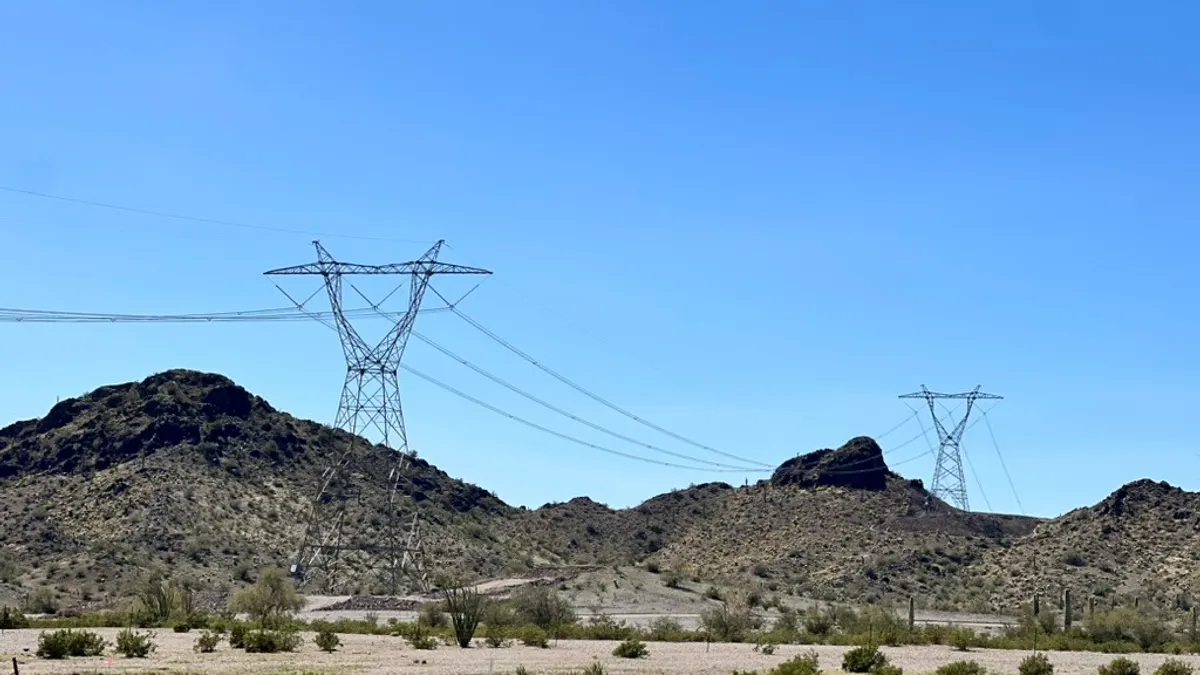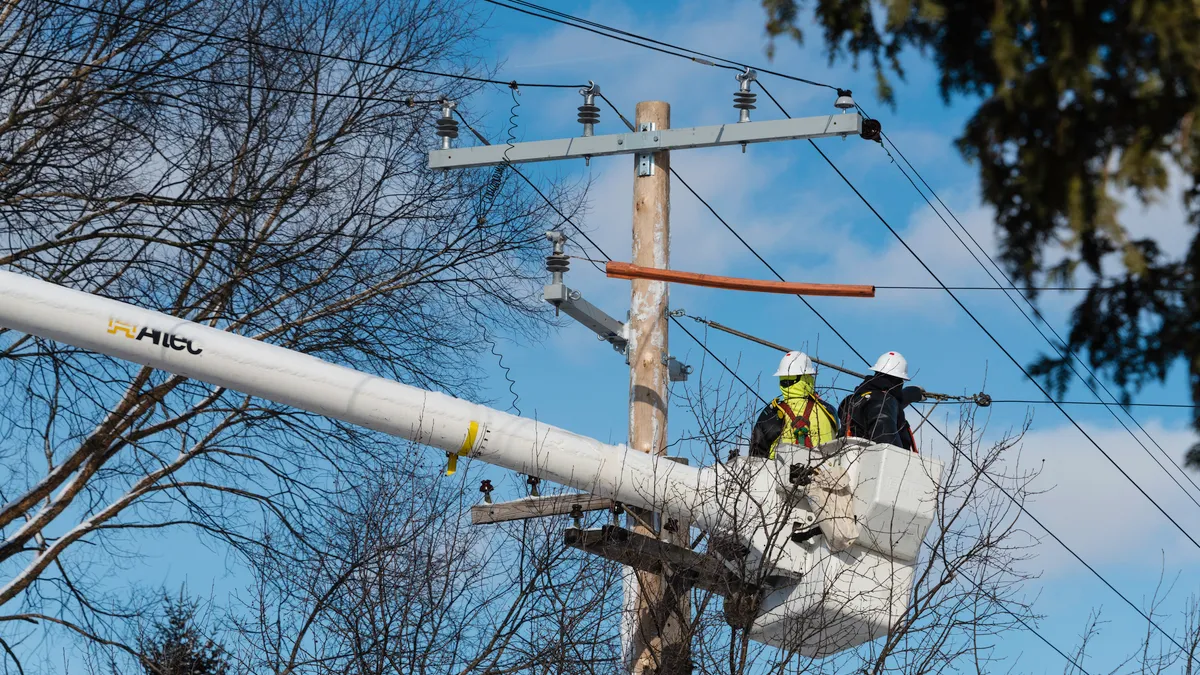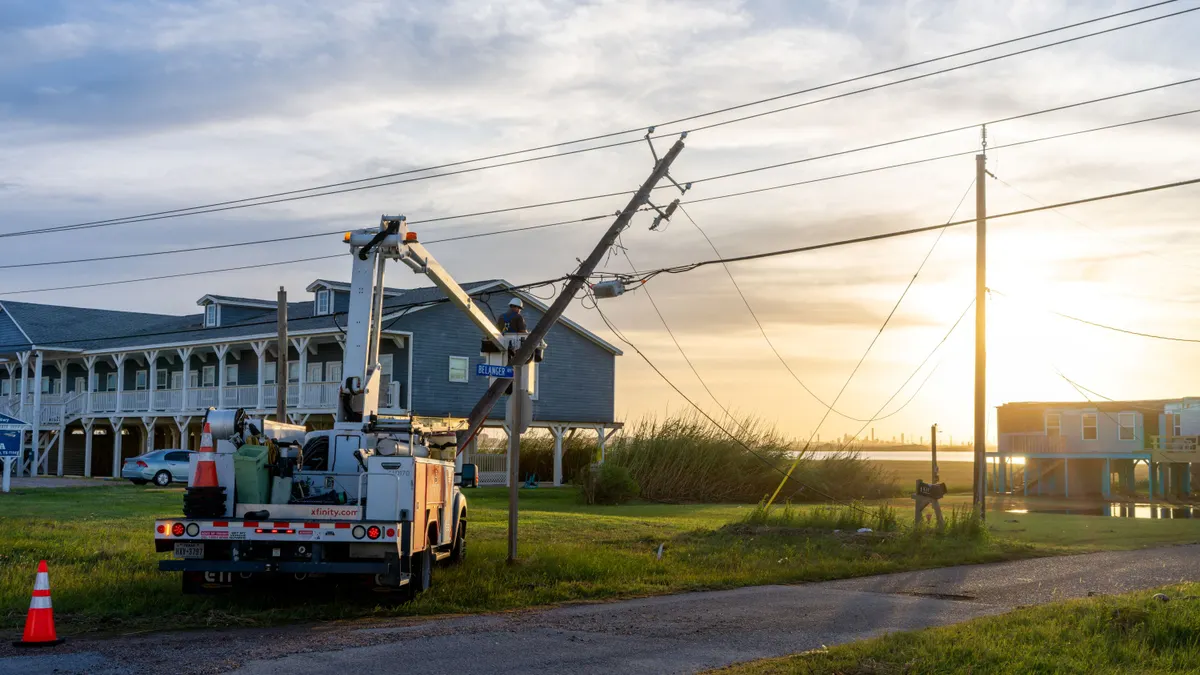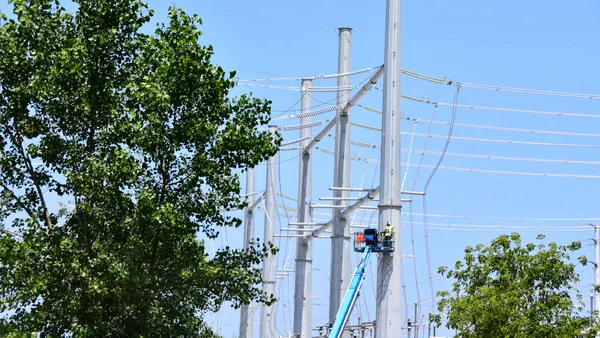The new year brought a whirlwind of news about Pacific Gas & Electric — California's largest utility — as it confronts mounting scrutiny over its equipment's role in starting multiple deadly wildfires.
Facing escalating insurance costs related to the blazes, possible outcomes for the company include breaking up into multiple parts, selling off its gas assets, replacing management and a second bankruptcy filing in as many decades.
The utility has faced all manner of challenges in recent years, but its current bout with jeopardy came to a head in the waning days of 2018 when California Attorney General Xavier Becerra said PG&E could face murder or manslaughter charges related to the state's deadly wildfires.
"Our focus continues to be on assessing infrastructure to further enhance safety and helping our customers recover and rebuild."

Paul Doherty
PG&E spokesperson
That opinion was filed with a federal judge overseeing the criminal case associated with a 2010 pipeline explosion on PG&E's gas system in San Bruno, Calif., where the utility is on probation related to the disaster. The resulting headlines have set off fresh speculation about the company's future.
Amid the events, the utility has stayed quiet on potential solutions, saying it remains concentrated on recovery from the 2018 fire season.
"Our focus continues to be on assessing infrastructure to further enhance safety and helping our customers recover and rebuild," spokesperson Paul Doherty said in an email.
Asked about the potential for manslaughter or murder charges, Doherty said the utility is concentrating on assessing its infrastructure and its "most important responsibility is the safety of the customers and communities we serve."
California utility regulators have made clear they don't want to see PG&E file for bankruptcy, but the situation is also complicated by a range of political factors. The utility is unpopular with voters and lawmakers don't want any actions to be construed as a bailout. To boot, there are rumors Becerra is eyeing a run for higher office and PG&E could make an effective foil.
Could PG&E face murder charges?
While a murder or manslaughter charge is a legal possibility, energy lawyers say other legal avenues are more likely for the utility.
Charging corporations with murder "is very rare," Kelly Strader, a law professor at Southwestern Law School in Los Angeles, told Utility Dive, "but it happens every now and then."
Ford Motor was acquitted of murder in the late 1970s in Indiana for deaths related to the design of the Ford Pinto's gas tank. In 2012, BP pled guilty to felony manslaughter — along with environmental crimes and obstruction of Congress — related to the Deepwater Horizon disaster that killed 11 people.
More recently in 2015, California charged two companies with murder related to deaths at a drug rehab center.
Strader said for the state to succeed with a murder charge they would need to find a responsible corporate officer, and prove they acted with a criminal mental state.
That is "hard to prove," he said, likely requiring some kind of smoking-gun memo or email.
Michael Wara, a lawyer and research fellow at Stanford's Woods Institute for the Environment, said he thinks the possibility of a murder charge for PG&E is "pretty unlikely."
"You'd have to prove a kind of intent, reckless disregard, on the part of key executives," he said. "It's possible, I suppose, but you'd have to prove intent in a way that is difficult."
What is more likely, Wara told Utility Dive, is that the federal supervision over PG&E — which its gas operations also face in the San Bruno proceeding — could be expanded.
"These fires this past year were unprecedented and extraordinary.

Kelly Strader
Professor of law, Southwestern Law School
The judge in the San Bruno proceeding "is likely to increase the intrusiveness, in terms of federal court supervision," Wara said. "The company is already under probation, essentially, because of San Bruno and this is going to raise questions about safety culture for the federal court."
Strader, however, cautioned against ruling out a murder charge.
"He might want to do that for political reasons, as people expect he will run for higher office one day," said Strader, adding, "These fires this past year were unprecedented and extraordinary."
The thing to watch for, Strader told Utility Dive, is whether Becerra files charges.
"If this weren't such a big issue in California because of the awful destructiveness and loss of life, I might not think it was likely at all," he said. But given the current situation, "I don't think it's completely a bluff."
A sale of the company's gas assets?
The California Public Utilities Commission has made clear it wants to shield PG&E from bankruptcy, but in December announced it was considering a wide range of significant options in a proceeding to improve safety at the utility.
Opening comments in the proceeding are due Jan. 30., and the commission has put just about everything on the table: from replacing the existing PG&E and PG&E Corp. board of directors to splitting the utility's natural gas and electric distribution and transmission divisions into separate companies.
"PG&E could go bankrupt within the next 60 days."

Michael Wara
Lawyer and research fellow, Stanford's Woods Institute for the Environment
Wara said the company isn't out of the woods yet with regards to bankruptcy, and he expects major changes.
"PG&E could go bankrupt within the next 60 days," Wara said. "They are basically cut off from capital markets, and the gas system is worth significantly more on its own than its current market capitalization."
While PG&E did not directly address Utility Dive's questions about the utility's future, NPR and Reuters have reported those possible outcomes are under consideration.
NPR on Friday evening reported that PG&E is considering selling its gas system in order to address billions in possible wildfire liability — a strategy the utility dubbed "Project Falcon."
Reuters separately reported the utility is again considering a bankruptcy fling. Concerns about that have been swirling since November, when the utility withdrew all its outstanding credit lines.
Changes to safety culture needed
For all the debate, there is one topic where all sides are in agreement: Improvements in safety are essential.
"All this stuff about PG&E charged with murder — if they were, so what?" said Wara. "The question I ask is will it make Californians in wildfire country safer?"
The utility has already faced a fine in excess of $1.5 billion, and it "doesn't seem to have changed safety culture at the company."
Wara said he is looking ahead to the CPUC's examination of utility safety culture for a sign how things will ultimately end, but he also said "the most likely outcome for success is board decides they want to do this right."
Ultimately, he said, that will cost more.
"First rate risk management isn't free. It costs something from everyone."

Michael Wara
Lawyer and research fellow, Stanford's Woods Institute for the Environment
"We really need to be thinking about how the distribution system is operated in wildfire country and mitigating power shutoffs, relaxing obligation to serve, allowing companies to shut power off when it is dangerous," he said. Wara believes the CPUC — not the federal courts — is where this would be most effectively addressed.
"First rate risk management isn't free," he said. "It costs something from everyone," referring to shareholders and customers.
PG&E's Doherty said the utility is already working on a safety overhaul and specific changes.
The utility is "evolving and expanding" its Community Wildfire Safety Program, he said, which PG&E launched in March 2018. Among the key components of the new program are real-rime monitoring and intelligence, enhancing vegetation management efforts, and coordinating prevention and response efforts.
The utility is also conducting accelerated safety inspections of over 5,500 miles of transmission lines, including approximately 50,000 structures in high fire-threat areas, along with conducting several system-hardening pilot projects.
Those pilots, Doherty said, include considering burying portions of the system but the idea must be evaluated "to better understand the costs and construction requirements associated with undergrounding for system hardening purposes."
With big changes likely ahead, Strader said an actual murder trial for PG&E is extremely unlikely.
"Companies, of course, can't go to jail," Strader said. If a murder charge were brought and survived initial challenges, he said PG&E would "almost certainly plead guilty" to avoid a protracted and damaging court battle.
Strader said he ultimately expects the utility will face "additional controls over how they behave .... some kind of extraordinary oversight."




